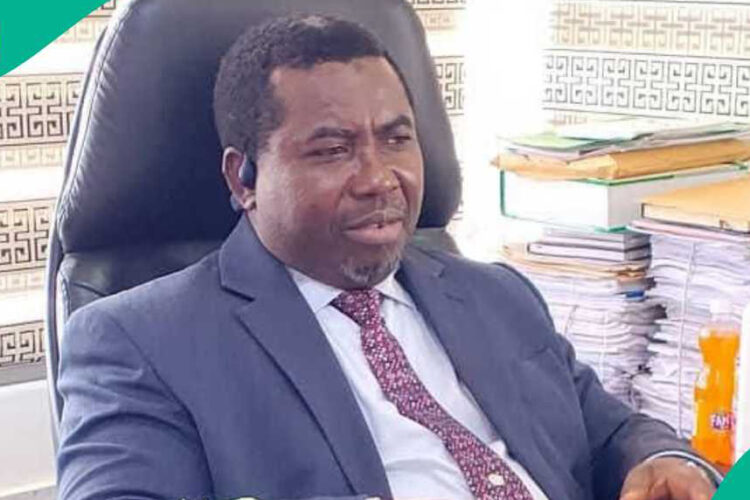
Among his many attainments, Amupitan is a professor of Law with specialisation in Corporate Governance, Law of Evidence, and Privatisation Law and, since 2014, a Senior Advocate of Nigeria (SAN). His friends from youth, Dr Ayo Olowonihi, retired director at EFCC, and Eniola Bello, Managing Director of Thisday newspaper, testify to the professor’s character, solid academic credentials, and leadership capabilities.
Prof. Chidi Odinkalu, who was his classmate at Law School, describes him as a person of decency and integrity. And President Bola Tinubu said that Amupitan was picked as “a testament to your capacity and the confidence” of the Government. So, to all intents and purposes, Amupitan is personally equipped for what the President himself admits is a challenging yet rewarding’ national assignment.
Less than a month into the job, INEC has successfully conducted in Anambra State a peaceful election reasonably acceptable to residents, independent observers, and the President. The Electoral Hub, a civil society organisation, commended INEC “for the relative professionalism and transparency demonstrated throughout the electoral processes.” The Public and Private Development Centre (PPDC) described the contest as ‘largely peaceful [and] the conduct of INEC officials and security personnel contributed significantly to the calm atmosphere…’ This notwithstanding, however, flaws and ‘critical challenges’ such as vote-buying and voter apathy (only 21.4 per cent of the 2,788,864 registered voters participated) were cited by some contestants and even impartial observers.
It may be admitted that the groundwork for this ‘achievement’ had been largely laid before Prof. Amupitan took charge at the Commission. Nonetheless, it is not out of place to grant him a measure of acknowledgement for INEC’s success. He only needs to consolidate this corporate improvement in the INEC’s performance by raising the bar in the coming June and August 2026 elections in Ekiti and Osun states, respectively.
The job of INEC chairman is arguably the most ‘challenging’ one after that of the President in this pluralistic, complex – even complicated – country. To preside over and deliver at three levels of government, elections that meet broad acceptance and minimal rancour is so tall an order that some say even angels may not achieve it. But that is to give up on Nigerians’ capability to self-govern. This is not acceptable to the extent of the pervasive belief that there are still good men and women who can make the critical difference to turn the country around onto the path of rectitude in governance. This begins with the integrity of the electoral process by which political leaders deserve and attain their positions at every level of government.
The job of the INEC chairman is only partly about a good man at the helm; it is also about a good system and good operators across the system. Put differently, it is all about a leader of integrity working in cooperation with other stakeholders/participants of integrity for, not mere personal or vested interest, but the common good that, in this case, means the best men for good governance.
Regardless of whatever flaws exist about the laws that govern elections in this country –the 1999 Constitution and the Electoral Act, 2022- there are sufficient legal provisions to enable free, fair and credible elections in this country, but on one proviso: that every participant in the process is patriotic enough to adhere to the rules. The November 8 election in Anambra is instructive in how to play politics without bitterness, respect for the rules of the game, as well as putting public interest above personal ambition, all of which can significantly support a credible election. The APGA candidate and sitting Governor, Charles Soludo, reportedly thanked President Tinubu for his commitment to ensuring a free and fair election according to democratic principles. The winner had convincingly defeated Tinubu’s APC candidate, and the president had warmly congratulated the governor.
It is trite to say that the role of INEC as umpire in elections is to ensure that the game is played and is seen to be played by accredited observers, by the well-defined, laid down and broadly accepted rules. Under section 15 of the Third Schedule Part 1 of the extant constitution, INEC, under Prof. Amupitan (and his predecessors), has wide-ranging powers over both the conduct of and the participants in elections. Besides, the 150 sections of the Electoral Act contain enough ‘regulations and guidelines for the conduct of elections’ that can reasonably meet global best practices. But these provisions presuppose the integrity of the persons involved to abide by them. Alas, there are never problems in the world, but of humans.
Prof. Amupitan presides over a gamut of officials performing layers of duties and responsibilities. These are persons with convictions, concerns, and interests that, truth be told, may not necessarily align with either his visionary leadership expectations or national interest. Indeed, Prof. Odinkalu did not hesitate to say that the new INEC boss has to confront three ‘principalities’, including politicians’ agents within the commission. By this, he meant, presumably, spiritual authorities using demonic powers to achieve their goals at whatever cost. Certainly, desperate politicians hell-bent on winning elections into lucrative public posts may be classified as ‘principalities.’
To be continued tomorrow.
Comments
This site uses User Verification plugin to reduce spam. See how your comment data is processed.